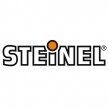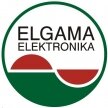-
Product Catalog
- Security and Surveillance Systems
- Automatic Circuit Breakers for Direct Current (DC) Circuits with Integrated Overload, Short-Circuit, and Voltage Stabilization Protection Functions
- Lighting with the help of electrical energy
- Automation and Control Systems
- Sealing profiles | rubber | gaskets | strips
- Inflatable Liquid Storage Tanks | Reservoirs | Bladders
- Inflatable rubber plugs for sealing high-pressure plumbing pipes
-
Electrical distribution and installation
- Electrical power | power cables | wires with copper conductors
-
Electrical Energy Supply | Distribution Panels | Boxes | Accessories
- Single-phase | three-phase electricity metering boxes
- Electrical energy distribution | metering boxes for apartments
- Surface-mounted electrical power panels | boxes
- Flush-mounted electrical distribution panels | boxes
- Special electrical panels for garages | panels designed for commercial premises
- Portable electrical distribution | panels | enclosures | boxes
- Electric current transformers
- Switch disconnector for electrical cabinets | accessories
- Sealing products | seals for electrical wires | cables | panels | boxes
- Terminals | connections for electrical cables | distribution | connection
- DIN rails for mounting modular equipment in the electrical distribution panel
- Accessories for electrical distribution panels | boxes
- Smart Automated Products | Control | Transmission | Detection
- Modular equipment installed in electrical distribution boxes | panels
- Smart electrical network analyzers
- Reliable power management | stabilization | control | uninterrupted supply
- Fuse holder blocks
- Fuse disconnectors
- Fuses
- Electrical installation components
- For domestic | professional use Extension cords | power supply extensions
- Industrial | domestic socket outlets | plugs | adapters for electricity supply
- High Voltage Equipment | Components 6kV | 10kV | 12kV | 20kV
- Underground Power Transmission | Overhead Power Lines
- Surge Protection and Lightning Protection
- Solar Energy Generation and Management Equipment
- HVAC control solutions for heating and ventilation.
- Special products and accessories
- Other products
- Safety tools
- Quality used products
Modular switch disconnectors
-
Read more
Modular Switch Disconnectors are essential in electrical installations used for energy protection and control. These devices are designed with modern technologies that ensure efficient and safe electricity supply. Modular switch disconnectors are mounted on a DIN rail, making them easy to integrate into existing electrical systems, ensuring optimal space utilization and easy access.
Functionality: Modular switch disconnectors are designed to protect electrical circuits from overcurrent, short circuits, and other failures. They automatically disconnect, preventing potential losses and helping to avoid fires. Switch disconnectors can be used in different electrical networks, ranging from residential to industrial facilities.
Advantages:
Protection: Provides reliable protection against electrical failures.
Easy Installation: Mounted on DIN rails, allowing for quick and easy installation or replacement.
Adaptability: Various models can be selected to meet specific needs, such as different current ratings.
Reliability: High quality of materials and construction ensures long-term operation.
Energy Efficiency: Helps optimize energy consumption.
Technical Specifications:Current Rating: Depends on the type of switch (e.g., 6A, 10A, 16A, 32A, etc.).
Voltage: Most commonly used are 230V/400V switch disconnectors.
Installation: Standardized mounting on DIN rails, allowing for quick and easy installation.
Field of Use: Modular switch disconnectors are widely used in residential, commercial, and industrial electrical systems. They are an essential part of any electrical distribution network, ensuring safe and efficient energy use.Modular switch disconnectors are a reliable and effective solution for electrical installations, ensuring safety and reliability. Their advantages and versatility help ensure that the electricity supply is not only efficient but also safe.
No items found.
US IN SOCIAL NETWORKS
























